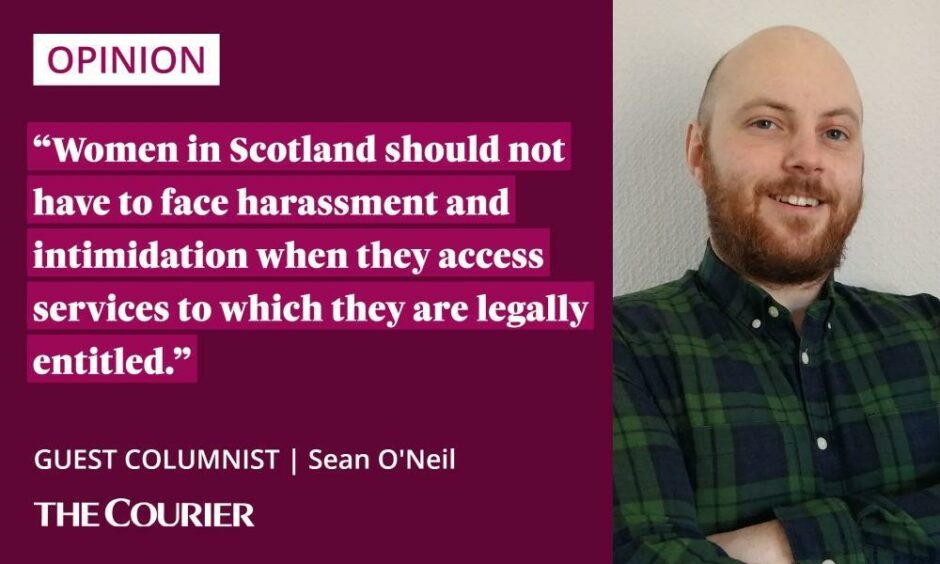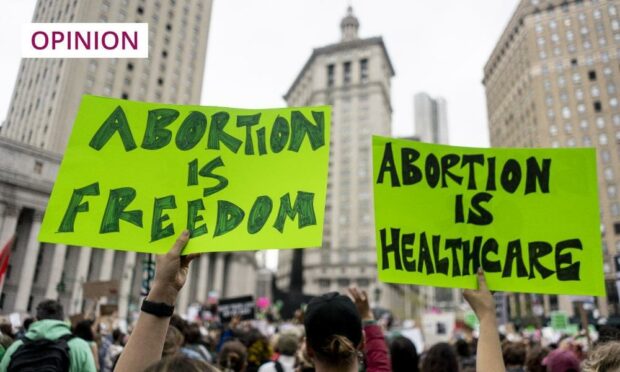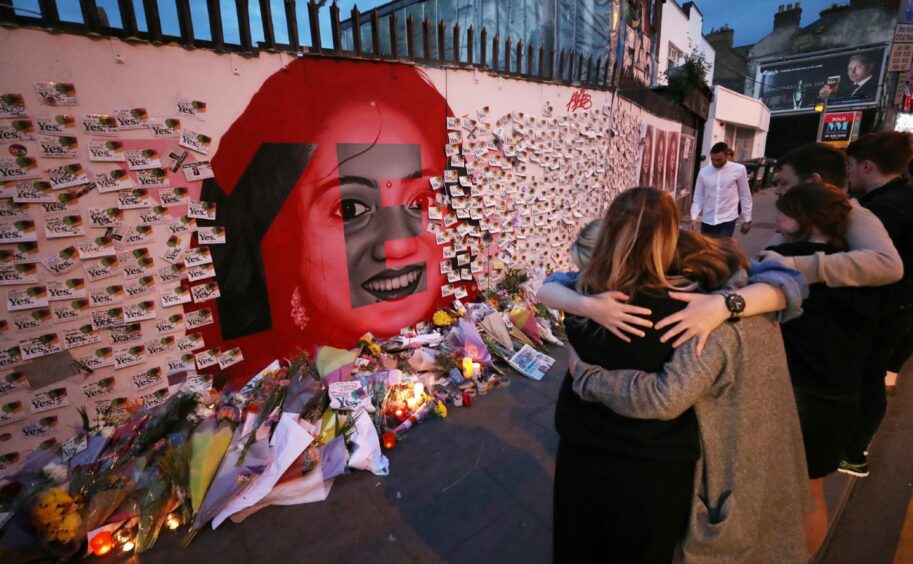There’s a theory that time-travel will never exist. Because if it did we would already know about it.
But that notion was blown out of the water by the US Supreme Court on Monday when a leaked document sent the country crashing back to 1972 and outed some of the judges as DeLorean-driving dinosaurs.
It suggests the court is poised to overturn the landmark 1973 Roe vs Wade decision which legalised abortion for women across America.
Battle lines are being drawn in the US. And campaigners on this side of the Atlantic are asking what it means for women’s right around the world.

Abortion is a touchy subject. Especially for those who believe women’s autonomy over their own bodies should come second to religious beliefs.
But no law should be determined based on the assumed beliefs of a possibly-not-real deity interpreted through a book that’s famous for being misinterpreted.
That these beliefs should trump laws that are fundamental to a woman’s right to choose is nothing less than dystopian.
Tragedy led to change in Ireland
I’m from Ireland, where abortion was only legalised in 2018.
Repeal the 8th was the cry at the time, referring to the amendment in the constitution that had stated that an unborn child had as much right to life as a pregnant woman.
During the campaign brave women spoke out about their previously secret journeys from Ireland to the UK for abortions.
If you don’t know a handful of women who’ve had an abortion, you’re not morally righteous or statistically anomalous; you’re just not the kind of person women trust with their secrets.
— Emily Porter, M.D. (@dremilyportermd) May 3, 2022
They went in their thousands, often alone and in distress, to receive the healthcare their own country refused them.
And the success of the campaign marked a long-overdue victory for women’s rights in a country that has also struggled with the overreach of the church.
But the victory came from tragedy.
Savita Halappanavar’s death in a hospital ward in Galway was the catalyst.
In 2012, the expectant mother was miscarrying and asked doctors for an abortion.
But with the faint heartbeat of the foetus still audible they were legally not allowed to perform the procedure.
The heartbeat lasted for six days. On the seventh Savita died from septicaemia.
Savita’s story is one of true horror. But horror stories are not the only reasons women need safe access to abortions.
There can be financial reasons, age reasons, medical reasons, many reasons.
Ultimately their reasons don’t matter to you and me. They matter to them. Which should be good enough for you and me.
Barriers to abortion access in Scotland
Across the border in Northern Ireland, abortion wasn’t legalised until 2019.
However, the Northern Ireland executive has yet to commission any services and the UK government is taking legal steps to override it and directly instruct health trusts to provide terminations.
It’s safe to say religion and old ideals are playing their part once again.
And while we can count ourselves fortunate that Scotland doesn’t boast the same Christian fanaticism as America, there are still those trying to operate that time machine when it comes to abortion here.
national legislation for buffer zones around abortion clinics would mean equal access to medical treatment and advice without fear of intimidation or harassment across Scotland.
say NO to a postcode lottery by signing our open letter
✍️https://t.co/Ni6UhZkmzM#SupportBufferZones pic.twitter.com/AOMDloWaJB— kat cary (@kat_cary) November 8, 2021
Calls are being made for the Scottish Government to introduce 150-metre buffer zones outside clinics across the country.
Doctors are urging Women’s Health Minister Maree Todd to act after more than 100 anti-abortion protesters gathered outside Queen Elizabeth University Hospital in Glasgow.
What’s happening in the US is alarming.
But women in Scotland should not have to face harassment and intimidation when they access abortion services to which they are legally entitled
In a world so awash with misogyny that it’s proudly printed on the front pages of national newspapers, there’s no need for us to go digging any further into the dark ages.


















Conversation